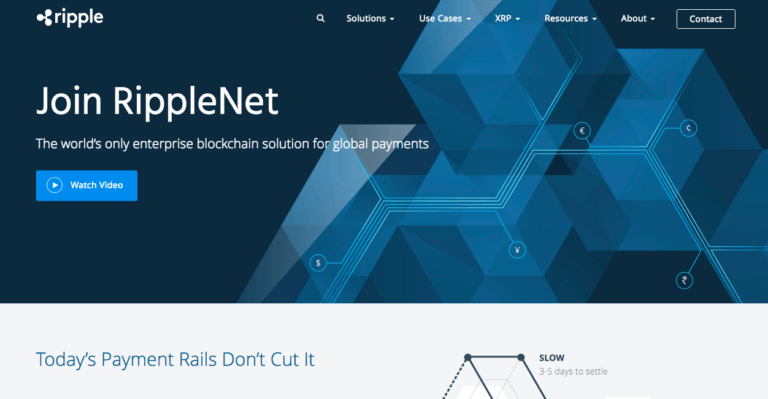On Thursday (February 7th), Californian FinTech company Ripple announced 11 new partnerships with universities from around the world as part of its University Blockchain Research Initiative (UBRI), which was launched in June 2018.
UBRI is “a partnership between Ripple and top universities around the world to support academic research, technical development and innovation in blockchain, cryptocurrency and, digital payments,” with Ripple “providing both financial and technical resources to university partners and collaborates with faculty and students on research and technical projects.” Ripple partners with those universities that have a good reputation for research in the fields of blockchain technology, cryptocurrency, cryptography, and related areas.
Ripple says that its current partners are “academic institutions: 1) with existing centers of practice and faculty and students who are already active and productive in related subject areas; 2) that are experiencing high demand from students and have related student-driven activities; 3) that bring a variety of perspectives from across a range of academic disciplines and technology; and 4) that contribute to the program’s overall geographic diversity.”
Ripple provides these partners with financial assistance, access to Ripple’s products, and access to key members of the Ripple team. Although Ripple’s initial financial investment in UBRI is $50, it has said that it intends to commit additional resouces as this program develops.
Ripple’s new UBRI partners are
- Carnegie Mellon University;
- Cornell University;
- Duke University;
- Georgetown University;
- University of Kansas;
- University of Michigan;
- Morgan State University;
- National University of Singapore;
- Northeastern University;
- University of Sao Paulo; and
- Institute for Fintech Research, Tsinghua University
Ripple’s announcement says that its university partners “will utilize UBRI resources in unique ways, developing curricula and expanding or launching courses, hosting conferences and awarding scholarships to faculty and students pursuing work in blockchain, cryptocurrency, digital payments and related topics,” and that these programs will help “to prepare the next generation of engineers, business leaders, entrepreneurs and other professionals to apply these technologies in practice” as well as “to increase positive awareness of the transformative impact that blockchain technology will have across all industries.”
Here are a couple of examples of what Ripple’s 28 academic partners have done or are doing as a result of the UBRI program:
- “… the partnership with the University of California, Berkeley has resulted in cross-departmental collaboration, as several schools within the University expanded relevant course-offerings, funded research projects and supported student-led activities and events, including an upcoming blockchain UI/UX hackathon.”
- “At U.S.-based Duke University and Georgetown University, UBRI will support expanding curriculum and teaching, research and technical projects and collaboration across disciplines.”
- “… the University of Sao Paulo is receiving funding for a blockchain innovation program, which will serve as an interdisciplinary forum across its schools of engineering, law, mathematics and economics and business administration.”
Eric van Miltenburg, Senior Vice President of Global Operations at Ripple, says:
“In less than a year, our initial UBRI partners hit the ground running with the launch of new research projects, events, course offerings and more. Expanding the ecosystem to a more global, diversified network of UBRI partners will only continue to enrich these projects.”
And Laura Tyson, Faculty Director at Berkeley Haas Blockchain Initiative, says:
“We are excited by the momentum that the Ripple UBRI Partnership has fostered at Berkeley Haas and throughout UC Berkeley in the development of blockchain, digital payments and cryptocurrency-related research and innovation. In December, we awarded the first round of Ripple-funded faculty and student blockchain, digital payments and cryptocurrency-focused research grants. Also, we are sponsoring numerous student-led activities this semester, including partnering with Blockchain at Berkeley to host a blockchain/fintech industry Spring speaker series at Haas.”
What Ripple is doing with the UBRI program makes great sense:
- It gets Ripple good publicity in all the countries in which these universities are based;
- the chance to work with some of the brighest young minds in the world and possibility to recruit the best of the best to work at Ripple; and
- those students who don’t end up working for Ripple have a good chance to either work in future in financial institutions that could become RippleNet members further down the road, or start their own blockchain companies that may develop solutions using Ripple’s technology.
Featured Image Courtesy of Ripple









